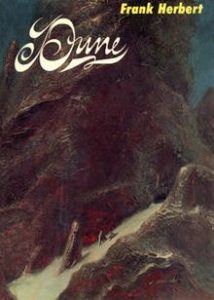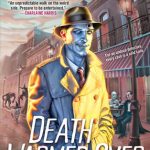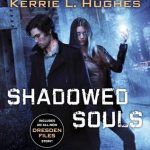 Dune: The Duke of Caladan by Brian Herbert, Kevin J. Anderson
Dune: The Duke of Caladan by Brian Herbert, Kevin J. Anderson Format: eARC
Source: supplied by publisher via Edelweiss
Formats available: hardcover, paperback, ebook, audiobook
Genres: science fiction, space opera
Series: Caladan Trilogy #1
Pages: 414
Published by Tor Books on October 13, 2020
Purchasing Info: Author's Website, Publisher's Website, Amazon, Barnes & Noble, Kobo, Bookshop.org
Goodreads
A legend begins in Dune: The Duke of Caladan, first in The Caladan Trilogy by New York Times bestselling authors Brian Herbert and Kevin J. Anderson.
Leto Atreides, Duke of Caladan and father of the Muad’Dib. While all know of his fall and the rise of his son, little is known about the quiet ruler of Caladan and his partner Jessica. Or how a Duke of an inconsequential planet earned an emperor’s favor, the ire of House Harkonnen, and set himself on a collision course with his own death. This is the story.
Through patience and loyalty, Leto serves the Golden Lion Throne. Where others scheme, the Duke of Caladan acts. But Leto’s powerful enemies are starting to feel that he is rising beyond his station, and House Atreides rises too high. With unseen enemies circling, Leto must decide if the twin burdens of duty and honor are worth the price of his life, family, and love.
My Review:
Dune: The Duke of Caladan really should have been titled Dune: The Book of Foreshadowing. Seriously. This book is all the foreshadowing all the time. That’s neither good nor bad, but it is kind of “meh”.

Which it may not be if the original Dune is just something you read but didn’t make that gigantic an impression. But those of us for whom the original is part of our personal canon (see Sarah Gailey’s marvelous feature for an explanation of what that REALLY means) there’s not nearly as much dramatic tension here as there was in the original.
After all, we already know EXACTLY what happens to all of these people – and only one year in their future at that. And even if you don’t already know from either the book or one of the dramatic adaptations, it’s pretty easy to find out. Dune was originally published in 1965 as a two-part serial in Analog magazine It tied for the Hugo and won the FIRST Nebula and was cited as the WORLD’s best-selling science fiction novel in 2003. Synopses and analyses and all kinds of other -ses are readily available pretty much everywhere, including a brief but decent summary on Wikipedia that manages to hit all the high points without nearly conveying just how compelling the damn thing is to read – or at least was when it first came out.
I read it in for the first time in the mid-to-late 1960s, probably not long after I read The Hobbit and The Lord of the Rings for the first time, so I was probably 11 or 12, certainly no more than 13, and it was one of the first big science fiction books I ever read, along with Asimov’s Foundation Trilogy, and Heinlein’s Stranger in a Strange Land – which I was MUCH too young to completely “grok” at the time. I read them all, including LOTR, more than once, and those readings formed the backbone of my lifelong love affair with Fantasy and Science Fiction – along with a heaping helping of Star Trek.
I think it’s difficult to see from today’s perspective just how influential those books were on a young reader who fell into the genre, because speculative fiction today, to treat fantasy and SF more broadly, is so much more influential – and infinitely more readily available – than it was then. There weren’t nearly so many choices, so discovering something that was just SO GOOD was marvelous and had an outsize influence.
All that to say that the original Dune – not the sequels and prequels and what-have-you – is a book I still remember very fondly – and still remember the high points of even decades after the last time I read it.
So I had hopes that this prequel would bring back some of that intense love I felt for the original OMG half a century ago. (Mind reels!) And it did bring back memories of the original book. Perhaps too many, as those memories cut the legs out from under any dramatic tension in this one.
Escape Rating C+: I loved the original, and this one suffers both in comparison and in the way that my knowledge of the original story turns almost the entirety of this book into foreshadowing of that one instead of feeling compelled to read this one in it’s own right.
Completists will probably love this book. However, while I may usually be a completist it’s just not working for me here. I feel like I already knew enough about what happened at this point in the history, AND it’s really difficult to get into a story knowing when, where, how and why the protagonist will die. And that the death in question isn’t even all that far off.
Even the information that is new to this story, like the plot about the Noble Commonwealth and the Caladan drug, drove me a bit bonkers as I kept expecting one of the Mentats to suggest that there might be a link between the two, but it never happens. Which meant that the “big reveal” wasn’t one to this reader, although it certainly was to entirely too many characters within the story.
But as much as that particular lack of computation felt like a missing piece, overall there were too many pieces, and they repeated too many things I remembered. When I saw the blurb for this book, I was expecting something a lot shorter than what I got. So don’t let the details on Amazon or anywhere else fool you, the Book Depository, and only on the British edition of the book, seems to be the only place that got the correct information. This is NOT a 320 page book. Rather, it just misses being a 420 page book by a hair. Maybe it SHOULD have been a 320 page book. But it isn’t.
Science fiction has been referred to as the “romance of political agency” and this is definitely a book in that mode. It’s all about political chicanery, noble skullduggery, and greed on all sides, with Leto as the one honorable man in the middle of an imperial shitstorm. Readers who are looking for something to either substitute for, whet their appetites for, or tide them over until the next movie version will probably enjoy this. There are plenty of juicy bits.
But it doesn’t live up to the original – or at least not the way that original shines so bright in my memory.



















